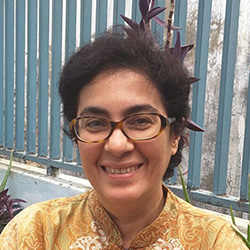Sustainability can be an advantage for Indonesia
Indonesia – The long-awaited rains have finally arrived in parts of Indonesia devastated by forest and peatland fires, bringing relief to regions that had recently been blanketed in toxic smoke. As is often the case during bad fire years, the world’s attention turns to the palm oil industry.
Preparing land by burning is cheaper than any other means, making fire the method of choice in many cases. However, when burning is not carried out under controlled conditions, the practice becomes problematic. In Indonesia, according to government figures, the area burned this year is considerably smaller, at about 328,772 hectares, compared with 2.6 million hectares in 2015 .
Malaysia and Indonesia together supply 85% of global palm oil production, through private corporations, state-owned companies and smallholders. Indonesia now has about 14 million hectares of oil palm under cultivation, operates more than 715 mills and 106 refineries, contributing to exports worth $23 billion in 2017. Millions of smallholders cultivate oil palm, and the sector employs about 8 million workers.
Unsustainable land development practices pose a threat to the Indonesian economy and environment.
“Sustainability is not option, it is a must,” said Herry Purnomo, senior scientist at the Center for International Forestry Research (CIFOR), explaining that the concept of sustainability is enshrined in the Indonesian constitution, with Article 33 verse 4 specifically highlighting the role of sustainability in national economic development. Purnomo said that environmental issues will grow more and more important as the palm oil industry evolves.
Sustainable development of the palm oil industry as an opportunity for Indonesian producers to compete more successfully, said Purnomo. “We need to prove that we are able to develop palm oil in sustainable way by complying to palm oil standards such as ISPO, RSPO and ISCC,” he said, referring to some of the sustainability certifications being imposed on the oil.
Some companies in Indonesia have already made commitments to sustainable production, pledging ‘No Deforestation, No Peat, and No Exploitation’ (NDPE). “In the future environmental issues will be like a religion,” said Purnomo. “We’re already seeing this trend in Europe.”
Industry’s impact on the environment
The European Union Renewable Energy Directive to phase out the use of palm oil for biofuels by 2030 has put pressure on Indonesian and Malaysian palm producers. Sustainability is what the people want, according to Michael Bucki, Climate Change and Environment Counsellor, European Union Delegation to Indonesia and Brunei Darussalam. “The policy is not palm oil specific,” he said. Bucki added that the EU is open to reconsidering the policy, but a “strong reduction in deforestation that is the bottom line.”
The Indonesian government has moved towards improving the governance of the palm oil sector including a decision in 2018 not to grant new licenses for plantations. Policy options on oil palm plantation management are being explored, Purnomo said.
“Improved productivity may compensate for the moratorium on plantation expansion,” he said. “Deep peat removal from plantations can be swapped with planting on mineral soils.
Agrarian reform in Indonesia will make smallholders the main actors in fruit production,” he added, referring to a government initiative on land tenure reform.
The role of small holders
Michael Brady, CIFOR principal scientist and Value Chains, Finance and Investment (VFI) team leader, said that although more than 40 percent of the oil palm plantations are managed by smallholders “it’s a big challenge to keep the small holders profitable due to price fluctuations, high cost of inputs and transportation, and lack of agricultural experience.”

Another trade-off is emerging between food security and nutrition. “The financial benefit for smallholders comes at a cost,” Brady said. “They are losing access to wild foods and becoming more dependent on processed foods.”
One of the solutions to these problems is to access the palm oil fund to improve smallholder productivity in oil palm production, according to Brady. In 2014, the Indonesian government set up a funding facility, collecting funds from palm oil exports and using it to improve various aspects of the sector. At the moment most of the funds are distributed to larger producers.
A team of scientists in CIFOR is developing Indonesia’s most extensive landscape management research in history – analyzing over 400,000 square kilometers of land in West Kalimantan in Borneo. The study will result in large-scale ecological vegetation maps covering the entire province.
Yves Laumonier, CIFOR/CIRAD senior scientist who lead the team said that he witnessed a lot of reduction in biodiversity, not specific to palm oil, but rather all monoculture plantations. Many forests are fragmented because of plantation development and conservation is important not only to big companies but also to smallholders.
Sustainable palm oil is possible. “The problem is not about the crop itself, but more about where and how humans plant and cultivate it,” said Purnomo. “Oil palm must not replace natural forests or national parks.”
Campaigns against unsustainable timber trade from Indonesia emerged decades ago, and the conflict was eventually solved through Indonesia-EU collaboration resulting in Forest Law Enforcement, Governance and Trade (FLEGT) licensing.
“I don’t see any reason why we cannot do the same for palm oil,” Purnomo said. “The ‘sustainability advantage’ for palm oil is the way to go.”
We want you to share Forests News content, which is licensed under Creative Commons Attribution-NonCommercial-ShareAlike 4.0 International (CC BY-NC-SA 4.0). This means you are free to redistribute our material for non-commercial purposes. All we ask is that you give Forests News appropriate credit and link to the original Forests News content, indicate if changes were made, and distribute your contributions under the same Creative Commons license. You must notify Forests News if you repost, reprint or reuse our materials by contacting forestsnews@cifor-icraf.org.













